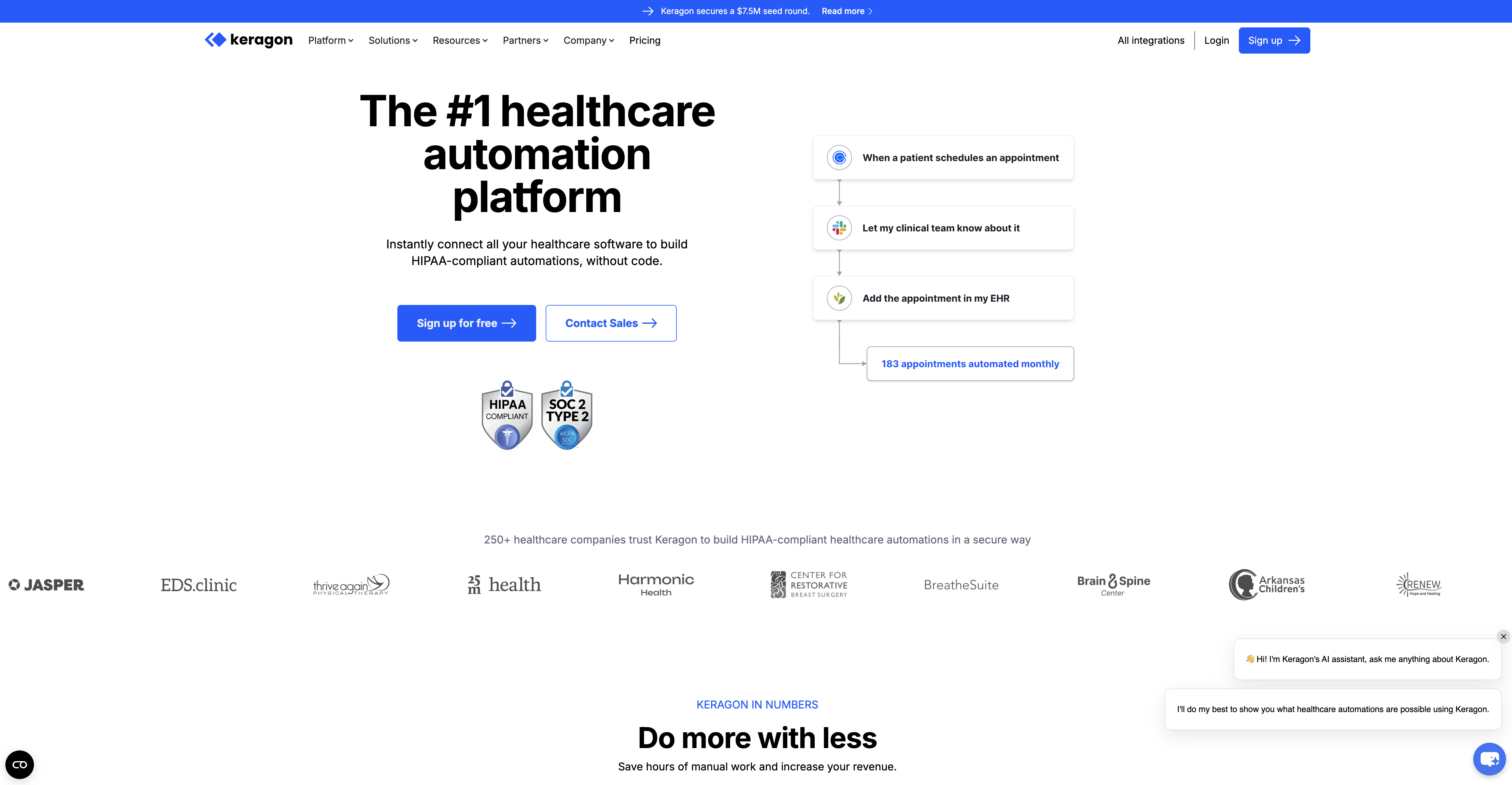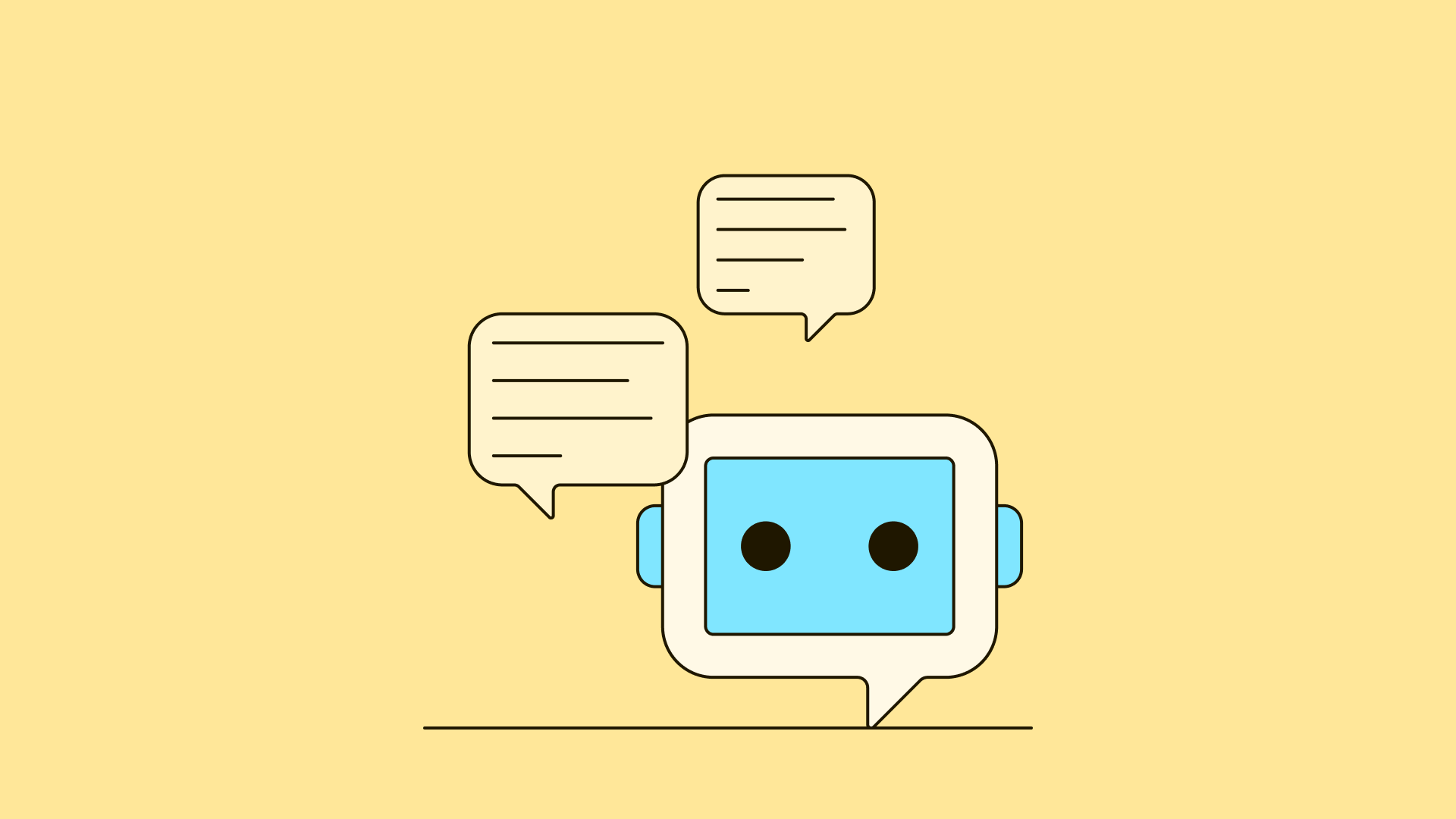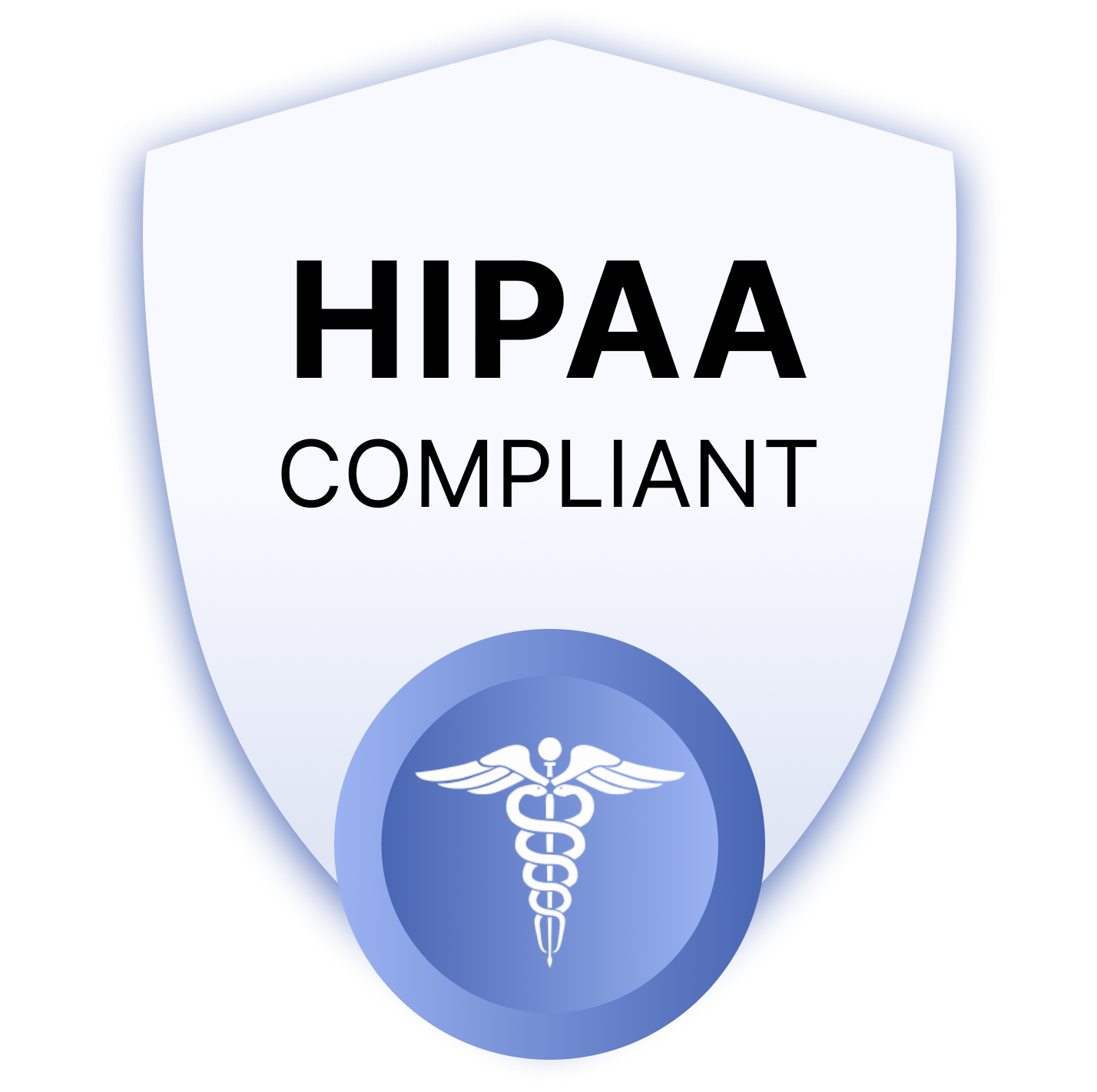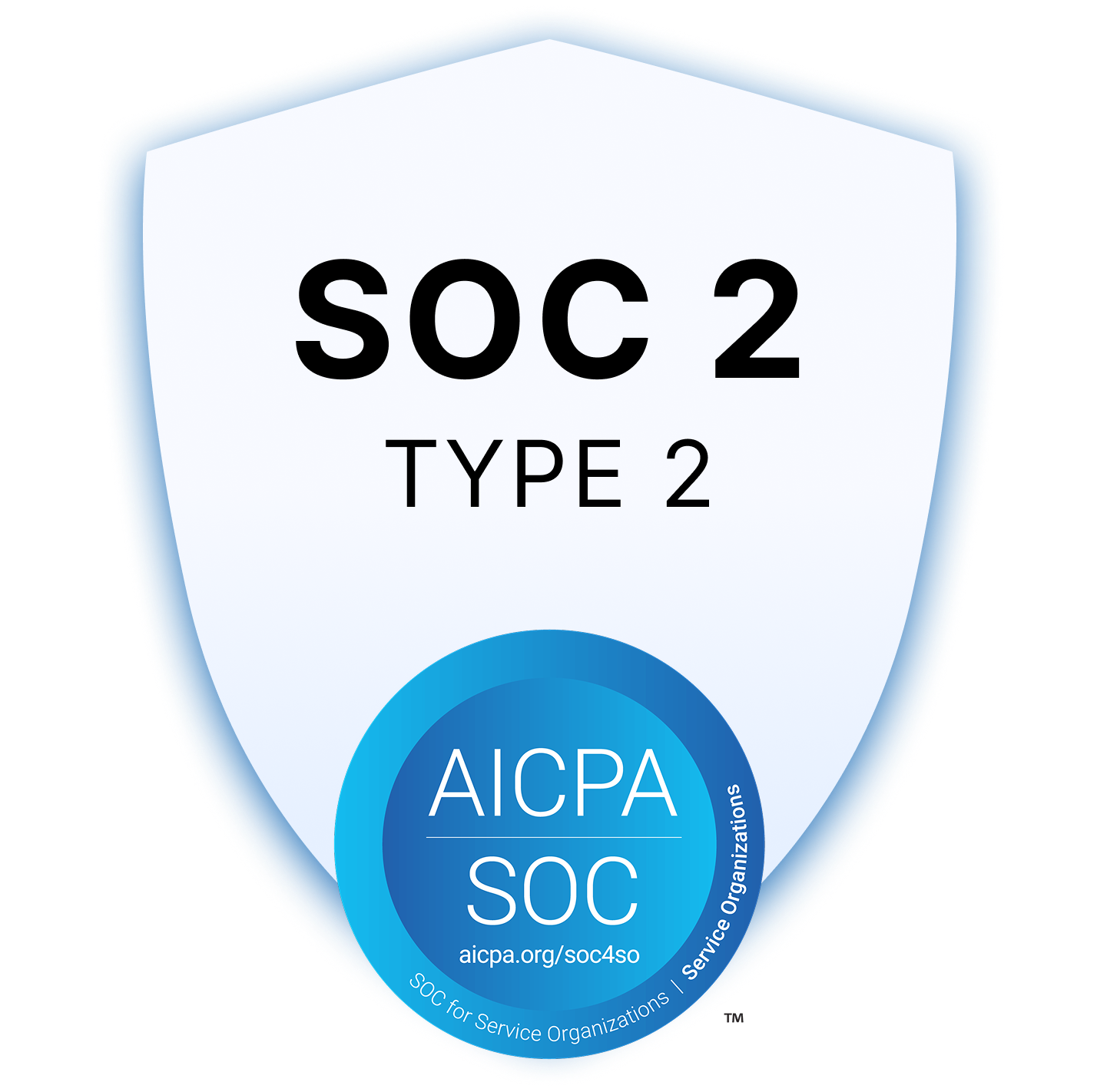
AI in Healthcare
5 min
The 8 Best AI Tools in Healthcare for Q1 2026
Summary
Your Competitors Are Embracing AI – Are You Falling Behind?
Artificial intelligence is transforming the healthcare landscape by offering innovative solutions that enhance patient care and streamline clinical processes.
AI tools in healthcare are enabling more personalized and efficient healthcare delivery, diagnosing diseases with remarkable accuracy, and aiding in the development of tailored treatment plans.
From AI chatbots that integrate with wearable devices to sophisticated diagnosis tools, the applications of AI in healthcare are vast and impactful.
In this article we'll dive into various AI tools for healthcare that are revolutionizing the industry and enhancing treatment and decision-making processes.
AI Tools in Healthcare: TL;DR
- AI is improving diagnostic accuracy by analyzing medical data with speed and precision comparable to human experts.
- Predictive analytics and decision-support systems help clinicians personalize treatment and detect diseases earlier.
- Automation is streamlining administrative and clinical workflows, reducing manual workload and improving operational efficiency.
- AI-driven imaging and laboratory technologies enhance the speed, consistency, and accessibility of critical diagnostic processes.
8 Useful Artificial Intelligence Tools in Healthcare for Q1 2026
1. Keragon

Keragon is a HIPAA-compliant no-code automation platform built for healthcare organizations, designed to help practices, clinics, and digital health companies securely connect their EHR systems, applications, and workflows without writing custom code.
Unlike generic automation tools, Keragon is focused on healthcare use cases, ensuring integrations are compliant, reliable, and easy to deploy.
Keragon is best for healthcare providers and digital health innovators who want to reduce manual work, improve patient operations, and focus on what matters most: care.
Solving core healthcare integration challenges
Healthcare organizations consistently face three major integration roadblocks:
Fragmented systems & data silos
- Problem: Patient data is often scattered across EHRs, scheduling apps, billing systems, and communication tools, leading to inefficiencies and errors.
- Keragon’s solution: Prebuilt healthcare connectors and a no-code workflow builder allow you to integrate Jotform, Athenahealth, DrChrono, Salesforce, and Slack seamlessly, creating one source of truth across your ecosystem.
Compliance & security concerns
- Problem: Using general-purpose automation tools often creates HIPAA compliance risks when handling PHI.
- Keragon’s solution: Keragon is designed from the ground up for healthcare, offering HIPAA and SOC 2 Type II compliance, encryption, and audit logs, giving IT and compliance teams peace of mind while enabling operational agility
Resource constraints & slow deployments
- Problem: Custom integrations often require months of engineering time, delaying workflows and driving up costs.
- Keragon’s solution: With its drag-and-drop builder, healthcare teams can launch compliant automations in days, not months. The platform’s responsive support team even builds new API connectors in as little as one to two weeks on request.
Top features
- Prebuilt healthcare connectors (EHR, CRM, comms)
- HIPAA and SOC 2 Type II compliance
- Drag-and-drop workflow builder
Pros
- Built specifically for healthcare
- Fast deployment of new connectors
- Strong compliance posture
Cons
- Fewer general SaaS integrations than Zapier/Make
Integrations
Keragon connects with 300+ healthcare tools, EHRs, and business applications, making it one of the most comprehensive integration platforms built specifically for the healthcare ecosystem.
Rather than generic app connections, Keragon focuses on the systems healthcare providers actually use day-to-day.
Top EHR integrations
- Athenahealth – Cloud-based EHR for private practices
- DrChrono – EHR & medical billing software
- Healthie – HIPAA-compliant EHR and Engagement software
- ModMed - Specialty EHR platform
Practice & operational tools
- GoHighLevel - All-in-one marketing platform for agencies
- Zocdoc – Book doctor appointments online easily
- Asana – Task & project management tool
Business & productivity connectors
- Salesforce – Industry-leading CRM software
- Slack – Team messaging and collaboration platform
- Microsoft Teams – Team collaboration via chat, calls, and meetings
- Google Workspace & Microsoft Office 365 – Productivity platforms for document sharing, calendar management, and secure data flow with EHR systems
With Keragon, healthcare organizations can bridge clinical and operational workflows, eliminating the inefficiency of siloed systems.
For example, when a new patient books an appointment via Zocdoc, Keragon can automatically update the EHR, create an intake form in Phreesia, and notify staff in Slack, all without manual entry.
Support
24/7 responsive support with fast turnaround on new connector requests, plus onboarding guidance tailored to healthcare use cases.
Ratings
4.8/5 average rating, with the majority of users praising ease of use and strong customer support on G2.
Pricing
Free trial available. Paid plans starting at $99/month.
Learn more here.
Case study: Faster referrals, happier patients
The Autism Center of Illinois, a pediatric therapy provider with 40 employees, faced a fragmented intake workflow involving manual handoffs, spreadsheets, emails, and disconnected tools. This resulted in delayed client onboarding, administrative burden, and compliance risk.
Keragon was deployed to automate the intake pipeline—linking tools like IntakeQ, Google Drive, Slack, and Monday.com—and automatically triggering tasks, notifications, folder creation, and conditional routing based on insurance or region.
As a result, the Center reclaimed roughly 10 hours per week previously spent on administrative work, and shaved 2 to 3 days off the onboarding timeline for new clients.
The workflows became more transparent, reliable, and auditable, giving staff and families confidence in the process, while maintaining HIPAA-compliant data handling.
Product Demo
Try Keragon yourself
The best way to understand Keragon’s impact is to see it in action.
Explore a 14-day trial where you can walk through common healthcare automation workflows like patient intake, referral processing, and claims integration.
From there, you can request a personalized demo and see how Keragon can fit into your own environment.
Unlock 300+ integrations with no hidden fees, bespoke rewards, and dedicated support
Join hundreds of healthcare oranizations automating smarter. Start your 14-day Keragon trial now.
2. IBM Watson Health

IBM Watson Health has been a pioneer in integrating AI into medical decision-making. It uses natural language processing and machine learning to analyze vast amounts of unstructured medical data, including clinical notes, research papers, and patient records. For doctors, this means faster, more accurate diagnoses and treatment recommendations. Particularly in oncology, Watson can suggest personalized treatment plans based on the patient’s specific genetic makeup and the latest research, effectively acting as a high-powered clinical assistant.
3. Aidoc

Aidoc is a leading AI radiology platform that helps doctors prioritize and diagnose critical medical conditions based on imaging data. It continuously scans images like CT scans for signs of conditions such as brain hemorrhages, strokes, or pulmonary embolisms. By flagging urgent cases in real-time, Aidoc reduces the workload on radiologists and allows for faster intervention, improving patient outcomes in high-risk situations.
4. PathAI

PathAI enhances the accuracy and efficiency of pathology diagnoses using deep learning. It analyzes pathology slides with high precision, helping doctors detect diseases such as cancer with greater accuracy. This tool reduces the likelihood of misdiagnosis due to human error or fatigue and provides consistent second opinions. It’s especially valuable in oncology, where early and accurate diagnosis is critical for effective treatment.
5. Tempus

Tempus is a precision medicine platform that uses AI to gather and analyze clinical and molecular data to help doctors make more personalized treatment decisions. It integrates genomic sequencing with patient health data to predict how individuals might respond to specific therapies. This tool is highly useful in oncology and rare disease treatment, where a one-size-fits-all approach is often ineffective. Doctors can use Tempus to stay ahead in tailoring therapies to a patient’s unique profile.
6. Butterfly iQ

Butterfly iQ is a handheld, AI-powered ultrasound device that makes imaging more accessible, portable, and intuitive. It connects to a smartphone and uses AI to guide physicians in capturing and interpreting images. This democratizes imaging, especially in rural or under-resourced settings where access to radiologists may be limited. Doctors can use it for bedside assessments, reducing time-to-diagnosis and enhancing point-of-care treatment.
7. Caption Health

Caption Health focuses on democratizing ultrasound by guiding clinicians with limited imaging experience to capture high-quality cardiac ultrasound images. Using real-time AI guidance, it prompts users on how to adjust the probe and provides feedback during the scan. This tool empowers doctors and nurses to perform echocardiograms with minimal training, making cardiac care more accessible in primary care and emergency settings.
8. DeepMind Health (by Google)

DeepMind Health has developed cutting-edge tools such as AI models for the early detection of diseases like diabetic retinopathy and age-related macular degeneration. One of its most notable projects is its collaboration with Moorfields Eye Hospital to develop an AI system that can interpret eye scans with an accuracy comparable to top doctors. This is invaluable for ophthalmologists, helping them prioritize patients and improve long-term outcomes through early detection.
Final Thoughts on AI Tools in Healthcare
As AI continues to revolutionize healthcare, tools like IBM Watson Health, Aidoc, PathAI, and others are becoming indispensable assets for medical professionals seeking to improve accuracy, efficiency, and personalized care.
From diagnostics to workflow automation and real-time decision support, these technologies are streamlining operations and enhancing patient outcomes.
As we look to the future, staying informed about the most impactful AI tools and integrating them thoughtfully into clinical practice will be key to delivering smarter, faster, and more effective healthcare.
Related Articles














